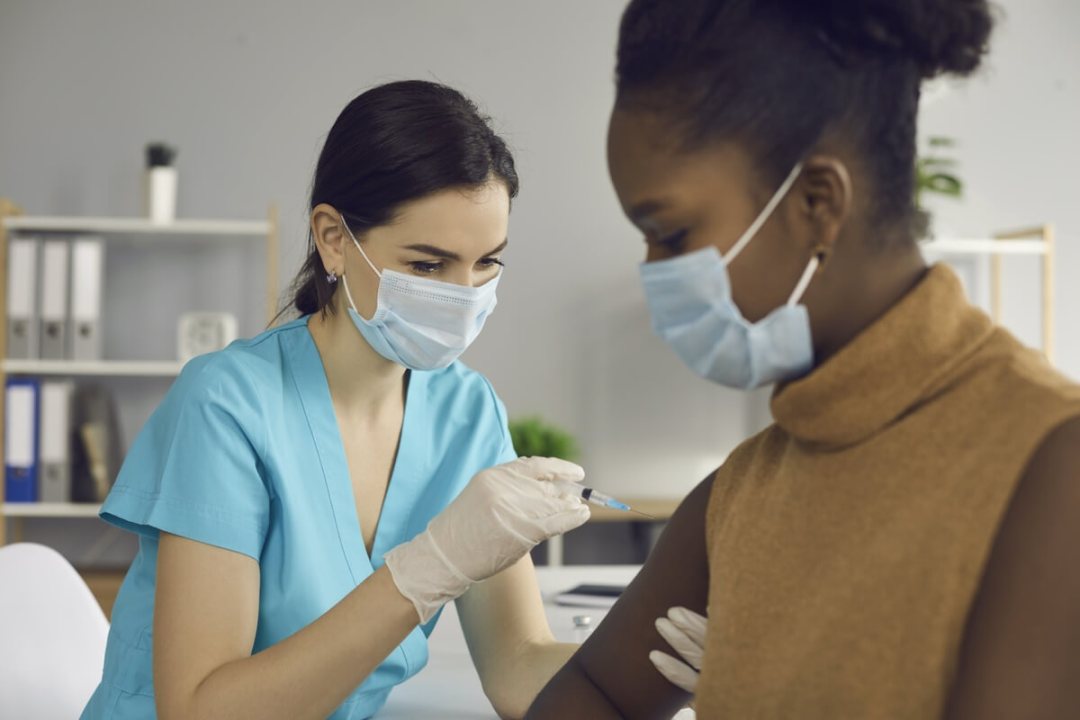Healthcare compliance training touches every part of post-acute care organizations. As regulations tighten and patient privacy standards […]
In our most recent webinar, Demystifying Vaccine Skepticism Among Direct Care Workers, we invited Dr. Mati Hlatshwayo Davis, a recognized epidemiologist and frequent CNN contributor on issues of vaccine skepticism and how vaccine perceptions are influenced. She was joined by David Rosales EVP and Chief Strategy at VNSNY who shared how VNSNY has successfully rolled out the vaccine to thousands of their care workers. This webinar features actionable strategies to engage your caregiver workforce in this important initiative!
The webinar was filled with valuable discussion. Since we didn't have enough time to get to everyone's questions, here is a list of the most commonly asked by attendees as well as the answers from our experts:
If I’ve already tested positive for COVID-19 and have antibodies, why should I get the vaccine?
According to the CDC, “you should be vaccinated regardless of whether you already had COVID-19. That’s because experts do not yet know how long you are protected from getting sick again after recovering from COVID-19. Even if you have already recovered from COVID-19, it is possible—although rare—that you could be infected with the virus that causes COVID-19 again. Learn more about why getting vaccinated is a safer way to build protection than getting infected.”
If you had COVID, how long do the antibodies last, or does anyone really know?
As of right now, there is no sure answer. The safest course of action is getting vaccinated, even if you have had COVID-19 to decrease your chances of contracting it.
Do I still need to get tested after receiving the vaccine?
Even if you have been vaccinated, you should still watch out for symptoms of COVID-19, especially if you’ve been around someone who is sick. According to the CDC, “if you have symptoms of COVID-19, you should get tested and stay home and away from others.”
How long does the vaccine last?
The CDC has not yet stated definitively stated how long protection lasts for those who are vaccinated, they project that it will last for at least six months, probably longer.
What ingredients are in the vaccine?
Vaccine ingredients can vary by manufacturer. To learn more about the ingredients in authorized COVID-19 vaccines, see:
- Information about the Pfizer-BioNTech COVID-19 Vaccine
- Information about the Moderna COVID-19 Vaccine
- Information about the Johnson & Johnson’s Janssen COVID-19 Vaccine
Many people I know that have had the vaccine are no longer taking precautions. Is this wise?
The vaccine has proven effective in stopping people from getting sick, but it is still recommended that you follow precautions.
Here is a list from the CDC that outlines what you can do and what you shouldn’t do after receiving the vaccine: https://www.cdc.gov/coronavirus/2019-ncov/downloads/COVID-19-AfterVaccine.pdf
What percentage of the population needs to be vaccinated to achieve herd immunity?
According to the World Health Organization, this number is not yet known for COVID-19.
“The percentage of people who need to be immune in order to achieve herd immunity varies with each disease. For example, herd immunity against measles requires about 95% of a population to be vaccinated. The remaining 5% will be protected by the fact that measles will not spread among those who are vaccinated. For polio, the threshold is about 80%"
If and when WHO and CDC have conflicting information, who do we listen to?
The WHO and CDC are both credible sources to gather information. It is important to recognize that being in a pandemic means that what we know about this virus is constantly changing. When reviewing sources from any reliable source, remember to check and make sure it is the most up-to-date one you can find.
Is the vaccine effective against other variants of COVID-19?
According to the CDC, “we’re still learning how effective the vaccines are against variants of the virus that causes COVID-19. Early data show the vaccines may work against some variants but could be less effective against others.”
Of the available vaccines, is there one that has shown the least side effects?
All of the vaccines run the risk of side effects. It’s not yet proven that one increases these odds over the others. To compare the vaccines being deployed in the U.S., check out this resource by the CDC.
Being African American, I am concerned about getting the vaccine. Based on the historical treatment of black people, why should African Americans trust this vaccine?
This concern was touched upon by Helen Adeosun and Dr. Mati Hlatshwayo Davis at the very end of the webinar replay. In short, what they found helpful was relying on their friends and family to weigh the pros and cons. For them, they both felt that taking the vaccine was the right choice because it's the only form of protection against COVID-19. For Helen Adeosun, knowing black women, like Dr. Mati Hlatshwayo Davis, have been involved in reviewing and studying this vaccine brought comfort as well. As a person of color, look towards doctors and scientists in your respective communities for guidance and reassurance and make the best decision for you.





